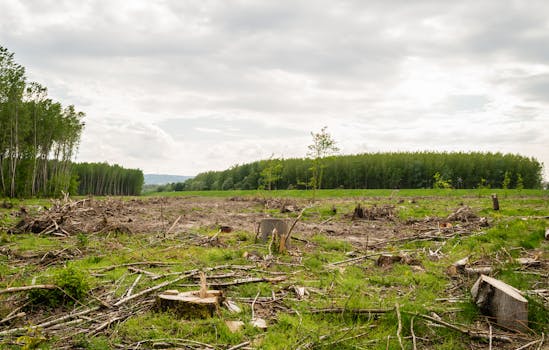
Introduction

Climate change has become one of the most pressing issues that humanity faces today. Its impact extends far beyond rising temperatures and extreme weather events; it profoundly affects global ecosystems. Ecosystems are interconnected communities of organisms and their physical environments, and they are essential for the health of our planet. Understanding the effects of climate change on these systems can help us mitigate the damage and promote resilience.
Disruption of Natural Habitats

One of the most immediate impacts of climate change is the alteration of natural habitats. As temperatures rise, many species are forced to relocate to cooler areas. This migration can disrupt local ecosystems, affecting food web dynamics and species interactions. For example, polar bears are losing sea ice habitat due to warming temperatures, pushing them closer to human settlements in search of food. Such disruptions can lead to an increase in human-wildlife conflicts, threatening both species and human safety.
Biodiversity Loss

The implications of climate change for biodiversity are alarming. Many species cannot adapt quickly enough to the pace of environmental changes—a phenomenon known as climate change-induced extinction. Coral reefs, often referred to as the “rainforests of the sea,” are experiencing bleaching events due to warm water temperatures and ocean acidification. These reefs, home to a diverse range of marine life, face severe destruction, which can precipitate collapses in aquatic ecosystems. Loss of biodiversity limits ecosystem resilience, reducing nature’s ability to recover from disturbances.
Effects on Agriculture and Food Security

Climate change alters the delicate balance of agricultural systems by changing crop growth patterns, pest dynamics, and soil health. Extremes in weather such as droughts and floods can devastate crops, leading to reduced yields. This poses a significant threat to food security, particularly in developing regions where farming practices are heavily dependent on climatic conditions. Transitioning to sustainable farming methods, climate-resilient crop varieties, and irrigation advancements will be essential to adapt to these changes and ensure future food security.
Conclusion

The intricate connection between climate change and global ecosystems cannot be overstated. Its impact on natural habitats, biodiversity, and food systems signifies a critical challenge for our planet’s sustainability. Protecting and conserving our ecosystems not only helps mitigate the effects of climate change but also preserves the intrinsic value of the natural world and aids in maintaining a balance vital for life on Earth. Collective action will be paramount to safeguard these systems for future generations.






